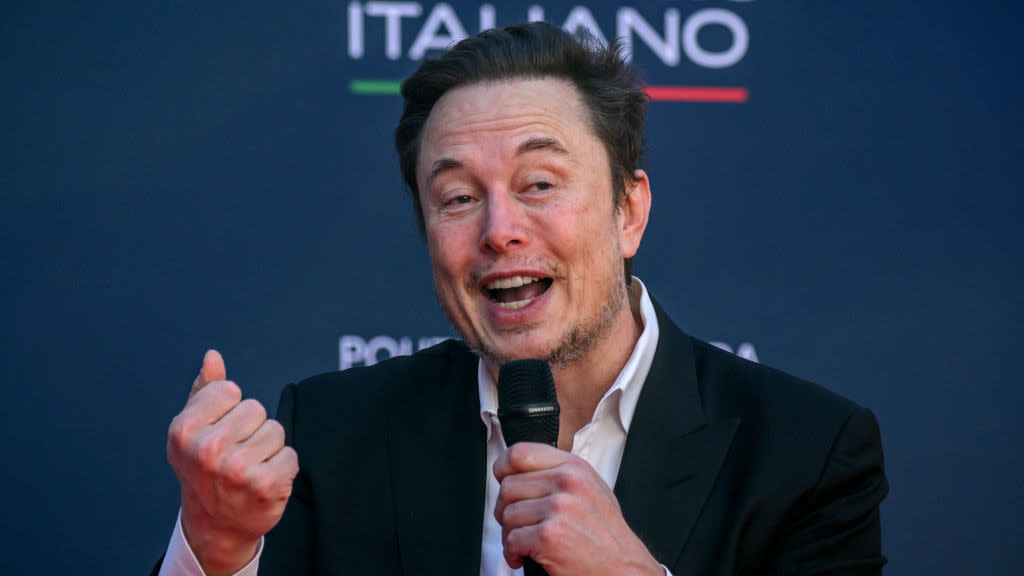The daily business briefing: January 8, 2024

1. Report: Investors, executives concerned about Musk's alleged drug use
Elon Musk's alleged use of drugs — including LSD, cocaine, ecstasy, psychedelic mushrooms and ketamine — has become a concern for some executives at the Tesla and SpaceX CEO's companies, The Wall Street Journal reported over the weekend. People close to Musk told the Journal they worried his drug use could result in a health crisis or damage his companies. Illegal drug use could violate federal policies and threaten SpaceX government space-flight contracts worth billions of dollars. Musk is a big part of the value of the companies, which employ tens of thousands of people and represent about $1 trillion in investor assets. A Musk lawyer said the billionaire is "regularly and randomly drug tested at SpaceX and has never failed a test." The Wall Street Journal, Fortune
2. Boeing shares drop, adding pressure on Wall Street
Boeing shares plunged more than 8% in premarket trading early Monday as the Federal Aviation Administration grounded many of the U.S. aircraft maker's popular 737 Max 9 jets after a piece of one of the planes blew out during an Alaska Airlines flight on Friday. The FAA said Saturday that its emergency airworthiness directive would require inspections of 171 planes worldwide. Alaska and United Airlines shares fell 6% and 2.7%, respectively, while Spirit dropped more than 15%. The declines dragged down the main market indexes, with futures tied to the Dow Jones Industrial Average down 0.4% and those of the S&P 500 down 0.1% at 7 a.m. ET. Nasdaq futures were flat. CNBC, Morningstar
3. First commercial moon mission launches
The Peregrine lunar lander developed by Astrobotic headed for the moon early Monday atop a Vulcan rocket made by a Lockheed Martin-Boeing joint venture, the United Launch Alliance. The rocket launched from Cape Canaveral on a mission aiming for a Feb. 23 soft landing on the moon — America's first lunar landing in more than 50 years and the first-ever commercial mission to the moon. The Peregrine lander, launched under the Commercial Lunar Payload Services program, will carry five NASA instruments to the moon. It will also deliver nonscientific items, including payloads for Elysium Space and Celestis, companies that offer "space burials" of cremated remains. CBS News, NBC News
4. Audacy files for bankruptcy protection
Radio and podcast giant Audacy, formerly known as Entercom, announced Sunday that it was filing for Chapter 11 bankruptcy protection. Audacy, the nation's second-largest radio broadcaster, blamed a "perfect storm" of "macroeconomic challenges" — including the Covid-19 pandemic — that had "led to a sharp reduction of several billion dollars in cumulative radio ad spending." The company is also saddled with $1.9 billion in debt, which a planned restructuring agreement will cut down to $350 million. Audacy controls some of the major U.S. radio markets' most popular stations, including WFAN sports-talk radio in New York and KRTH in Los Angeles. Radio companies, like newspapers and other traditional media firms, have struggled for years against online competition for advertising revenue. Axios, CNN
5. VinFast announces plan for $2 billion EV factory in India
Vietnamese automaker VinFast said Monday it would invest up to $2 billion to build an electric vehicle factory in India's southern Tamil Nadu state. The facility will be VinFast's first step into India, the world's third-largest auto-sale market. The move is part of an expansion that has included VinFast's entry into the United States and other markets. Tran Mai Hoa, VinFast's deputy CEO of sales and marketing, said the India project is an example of the company's "vision of a zero-emission transportation future." VinFast says the factory will have the capacity to make 150,000 EVs a year. The Associated Press


